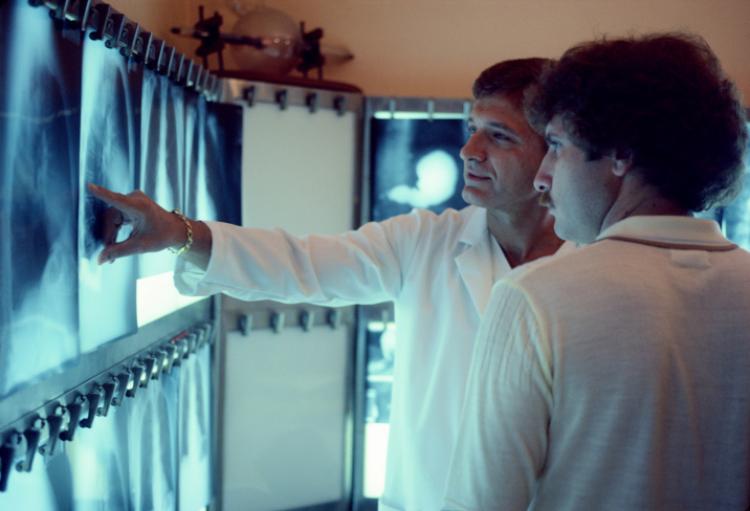Prostate cancer sufferers who are prescribed a common treatment called androgen deprivation therapy (ADT) may be at risk for bone decay, a study to be published in the Journal of Clinical Endocrinology & Metabolism (JCEM) said.
ADT’s limitation and obstruction of the production of male sex hormones could lead to changes in bone structure and density, the report said.
The study examined 24 men with prostate cancer who were given ADT for 12 months. “Virtual bone biopsies,” or 3D high resolution peripheral quantitative computed tomography (HR-pQCT), allowed doctors to measure male steroid levels, bone turnover, and bone density.
“We used a new technology that allows us to assess bone microarchitecture and we found ADT is associated with structural decay of corticol (hard outer shell) and trabecular (spongy inner mesh) bone,” said University of Melbourne doctors and co-authors Emma Hamilton, MBBS and Mathis Grossmann, MD, PhD.
“Sex steroid deficiency induced by ADT for prostate cancer results in microarchitectural decay,” Grossmann concluded.
More than 600,000 adult US men have prostate cancer, and the disease is the second most common cancer found in men.
ADT’s limitation and obstruction of the production of male sex hormones could lead to changes in bone structure and density, the report said.
The study examined 24 men with prostate cancer who were given ADT for 12 months. “Virtual bone biopsies,” or 3D high resolution peripheral quantitative computed tomography (HR-pQCT), allowed doctors to measure male steroid levels, bone turnover, and bone density.
“We used a new technology that allows us to assess bone microarchitecture and we found ADT is associated with structural decay of corticol (hard outer shell) and trabecular (spongy inner mesh) bone,” said University of Melbourne doctors and co-authors Emma Hamilton, MBBS and Mathis Grossmann, MD, PhD.
“Sex steroid deficiency induced by ADT for prostate cancer results in microarchitectural decay,” Grossmann concluded.
More than 600,000 adult US men have prostate cancer, and the disease is the second most common cancer found in men.








Friends Read Free